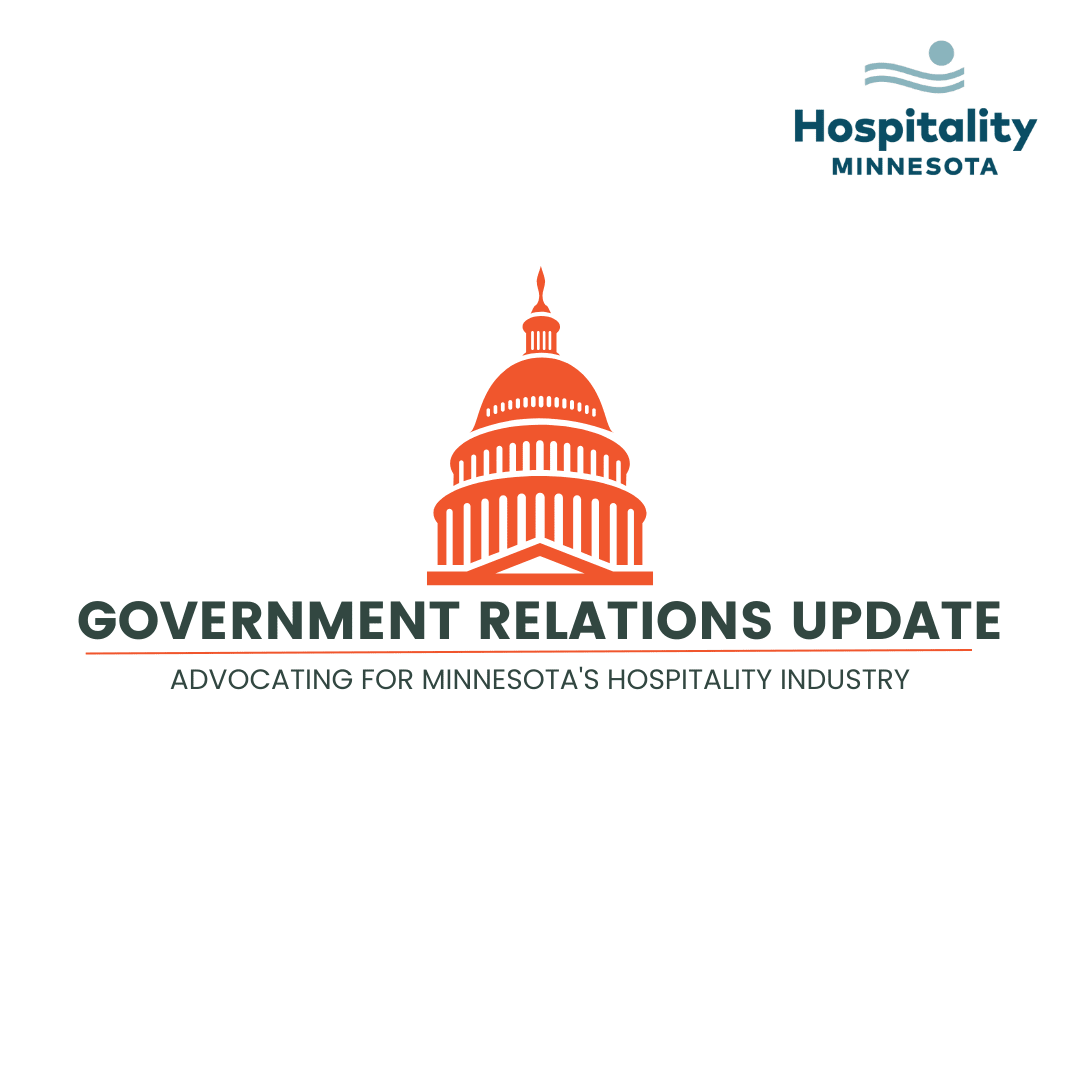
Cannabis Update
Next week, the House and Senate will vote on the omnibus cannabis bills (HF100 and SF73, respectively). While there are some differences, which are expected to be negotiated on in a conference committee, here are a few things to know regarding the legislation. The House version has made 15 committee stops, and would allow an individual age 21 and older to:
- possess up to 2 ounces of cannabis flower in a public place or 1.5 pounds in a person’s residence;
- possess or transport no more than 8 grams of adult-use cannabis concentrate;
- possess or transport edible products infused with up to 800 milligrams of THC;
- give away cannabis flower and cannabinoid products in an amount that is legal for a person to possess in public;
- use cannabis flower and cannabinoid products in private areas; and
- cultivate up to eight cannabis plants, of which four or fewer may be mature, flowering plants. (Note: while an individual may grow it – they cannot sell it, it’s for personal use).
Other significant changes to Minnesota law include:
- creating more than a dozen types of licenses for growing, selling, transporting and testing cannabis;
- creating an Office of Cannabis Management to regulate cannabis and take enforcement actions;
- taxing cannabis retail sales at 8%, in addition to any already imposed local or state taxes;
- creating and funding programs to combat cannabis abuse;
- creating grants to assist individuals entering the legal cannabis market;
- eliminating criminal penalties for cannabis possession; and
- expunging the criminal records of people previously convicted of low-level cannabis offenses.
What about hemp-derived THC?
- lower-potency hemp retailers are able to obtain licenses to continue selling edibles and drinks with no more than 5 milligrams of THC per serving (50 milligrams per package).
- on-site consumption is permitted if the retailer has an on-site consumption endorsement; which is allowed to any lower-potency hemp edible retailer that also holds an on-sale license.
- prior to initiating a sale, lower-potency hemp edible retailer must verify the customer is at least 21 years of age.
- a lower-potency edible product retailer may not sell a lower-potency hemp edible to a person who is visibly intoxicated and for on-site consumption, it is prohibited to sell lower-potency hemp edibles to a customer when the retailer knows or reasonably should know the customer has consumed alcohol sold or provided by the lower-potency hemp edible retailer within the previous 5 hours.
- a lower-potency edible product retailer may not allow for the dispensing of lower-potency hemp edibles in a vending machine or distribute or allow free samples of lower-potency hemp edibles.
What about workforce issues?
We are currently working to better understand the bills implications for the workforce. A few things the bill does include:
- There are not limitations on an employer’s ability to discipline or discharge and employee for cannabis flower, cannabis product, lower-potency hemp edible or hemp-derived consumer product use, procession, impairment, sale or transfer during work hours, on work premises, or while operating an employer’s vehicles, machinery, or equipment, or if a failure to do so would violate federal or state law or regulations or cause an employer to lose a monetary or licensing-related benefit under federal law or regulations.
- An employer must not request or require a job applicant to undergo cannabis testing solely for the purpose of determining presence or absence of cannabis as a condition of employment unless otherwise required by state or federal law.
- An employer may enact or enforce written rules prohibiting cannabis flower, cannabis product, lower-potency hemp edible or hemp-derived consumer product use, procession, impairment, sale or transfer while an employee is working or while an employee is on the employer’s premises or operating an employer’s vehicles, machinery, or equipment in a written policy that contains the minimum information required.
- There are certain requirements and guidelines for when cannabis testing can be requested or required (such as an injury under believed impairment).
Hospitality Minnesota will continue to review and monitor the cannabis bills over the coming days and weeks, with the intention of putting together a memo of relevant information.
